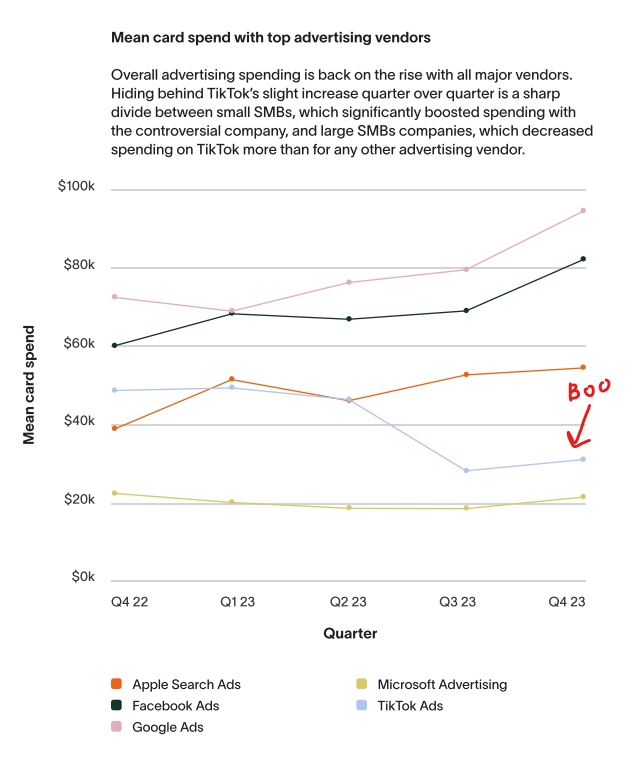
Happy Sunday!
If you feel like watching millionaires preen over their own brilliance, feel free to head over to tech Twitter. If you feel like watching sexy millionaires preen over their own brilliance, enjoy the Oscars tonight at 7 p.m. ET. If you want to read something insightful written by completely average-looking folks, here are our stories and the news from the week.
Our stories
“The Rise and Fall of Steve Jobs’s Greatest Rival” by Gareth Edwards/The Crazy Ones: Digital strategist, writer, and historian Gareth Edwards makes tech history come alive in a way we’ve never encountered before. In his new column for Every, The Crazy Ones, Gareth will tell the stories of the forgotten men and women who thought differently and helped build the businesses and technologies of the future. His latest piece demonstrates how the personal computing battles of the early 1980s—when Steve Jobs and a technologist named Adam Osborne battled for supremacy—echo to today. Read this to 1) bask in the incredible writing, 2) enjoy the fascinating story, and 3) learn how others’ mistakes can help solve your problems. 🎧 Listen to an audio version of this essay on Spotify.
“Claude 3 Is the Most Human AI Yet” by Evan Armstrong/Napkin Math: At this point, there are more AI models than there are Blue Bottles in San Francisco, so it’s easy to lose track of which AI announcement matters and which is just fluff. This week, there was one of the former: Claude 3, from Anthropic, a startup founded by some OpenAI defectors in 2021. Evan extensively tested the model and found that it was significantly, well, warmer. It felt human to talk to in a way we’ve haven’t encountered before. Eerie. Spooky. But also, exciting. Read this to learn about the latest in AI foundation models.
“How to Be More Agentic” by Cate Hall: We enjoy highlighting the stories of people whose lives fill us with a pleasant buzz of self-loathing. Cate Hall is one of those people. She was a Supreme Court advocate, the number-one female poker player in the world, and a founder of art and perfume companies. What’s remarkable is that she did all of this in her thirties. It was only once she embraced becoming a high-agency individual that she was able to accomplish these things. This article talks about her approach of “finding real edges: things you are willing to do that others aren’t, often because they’re annoying, unpleasant, or obscured in a cloud of aversion.” Read this if you want to be fired up for the week to come.
🔏 “ChatGPT Can Turn Anyone Into a Video Game Developer” by Rhea Purohit/Chain of Thought: We’ve argued for years that AI will drive creation costs to zero, making it easier for anyone to create a digital good. In this piece, Dan and Logan Kilpatrick, who served as OpenAI’s first developer relations advocate, used ChatGPT to make a text-based video game. Look, Dan and Logan are smart guys, but they aren’t exactly John Carmack and Doom-levels of video game design brilliance. Despite that, with ChatGPT, they made something fun to play in less than 60 minutes. Read this if you want practical tips on how to make great things faster with ChatGPT.
“Ads in the Age of AI” by Evan Armstrong/Napkin Math: Ads subsidize our entire information ecosystem, keeping content free and accessible for everyone. AI may change all that by reducing both the amount of ads being served and the amount of time that people spend browsing, a one-two punch that will be devastating for the revenue of internet-reliant businesses. The result will be an entirely new techno-economic paradigm for the internet. Read this if you want to see how the internet will work in 10 years. 🎧 Listen to an audio version of this essay on Spotify.
The backchannel
Evan’s piece on ads in the age of AI garnered the most feedback. Here’s one response:
“Evan, I think you might be misunderstanding the ‘you are the product’ idea...Here's the way the media company thinks about this:
‘We need to go sell our ads. We're going to be able to do that with two things:
1. the demographics of the audience. Are they a group that advertisers want to reach? (worth highlighting that the ad people use the word “target,” which, of course, is a hunting term)
2. the actions of the audience. Can we get them in the mood to do something?’
But in both cases, what's on offer is the audience. Their attention and the manipulation/shift in their actions. Is there any doubt that using Facebook changes the people who use it? Changes their attention, their point of view, their heart rate, heartbreak and actions? Facebook changes people the way U.S. Steel changes iron. That's what their factory does.” —Seth Godin
Want to chat? DM Dan or Evan on X.
Chain of links
All of the money, some of the users. Inflection, an AI chatbot company that focuses on consumer use cases, announced it had a new model that is competitive with GPT-4. Up to this point, it’s raised $1.3 billion. The service has 1 million daily and 6 million monthly active users, and has grown 10 percent week over week the last two months. Not bad! But also, ChatGPT has 100 million users. And also, this means its dollar-raised-to-daily-user ratio is 1300 to 1. Eek.
The empire blogs back. OpenAI published a verbal riposte to Elon Musk’s lawsuit in which it argued that Elon was always on board with the nonprofit turning into a for-profit and his lawsuit is baseless. The company’s evidence? What Musk himself said in emails. Honestly, I’m getting tired of writing about this. Real founders fight with products, not lawsuits. Make something people want. —Dan Shipper and Evan Armstrong
The napkin math
Sneaky big business. Discord—a community chatroom product focused on entertainment (it is also what we use to run Every because we are too cheap to use Slack)—announced that it hit an annualized run rate of $600 million and 200 million monthly active users. This is incredibly impressive. The company doesn’t run any ads and relies on a subscription product that mostly grants user interface upgrades. I’m surprised it’s taken it this far, and it’ll be interesting to see where it goes next.
Begone, foul app! Begone! U.S. lawmakers voted to force TikTok parent company Bytedance to divest the social media app or get the boot from U.S. app stores. Lawmakers argue that the app, which has 170 million American users, is a part of the Chinese government espionage apparatus that is being used to influence people’s minds. Maybe? I don’t think TikTok is good and would be happy to see it shot into the sun. But I also feel that way about short-form video in general! A black-box algorithm that recommends dicey political opinions essentially describes every internet service on earth. Even if getting rid of TikTok is the right thing to do, it would set an uncomfortable precedent. The bill isn’t yet law but momentum is strong. —EA
For the love of charts
TikTok ads? Never liked ’em anyway. Whatever the merits of the bipartisan effort to separate the Chinese government malware social media app from its Chinese parent company, it turns out that from a commercial standpoint, TikTok’s importance is shrinking for some vendors. According to Ramp’s quarterly spend report, mean spend on TikTok apps dropped by approximately 50 percent over the second half of the year.
Source: Ramp.
OK, well, apparently “small SMBs” still spent on TikTok, but bigger companies shifted their spend to Google, Facebook, and even Apple Search. Once again, American brain-hacking malware is undefeated. U-S-A! U-S-A! —Moses Sternstein
More great reads
We partnered with Bessemer Venture Partners to share some tactical resources for founders:
- How to Lead: Founder Fundamentals—Seven essential lessons for new, aspiring, and early-stage founders from 30-plus top leaders in technology.
- GTM course—Guides, benchmarks, and basics for building your SaaS go-to-market engines.
Eye candy
What if software companies made hardware? Here’s the Perplex Mini: AI-generated answers on the go. —Lucas Crespo
Source: Lucas Crespo/Midjourney, DALL-E, Photoshop.
That’s all for this week! Be sure to follow Every on X at @every and on LinkedIn. Was this newsletter forwarded to you? Sign up to get it in your inbox.
The Only Subscription
You Need to
Stay at the
Edge of AI
The essential toolkit for those shaping the future
"This might be the best value you
can get from an AI subscription."
- Jay S.
Join 100,000+ leaders, builders, and innovators

Email address
Already have an account? Sign in
What is included in a subscription?
Daily insights from AI pioneers + early access to powerful AI tools








Comments
Don't have an account? Sign up!
It is one of your best collections of enjoyable articles.
@radicallypracticalgravity so glad you feel that way!!
@danshipper I liked your article in Claude, which is my favorite. Gemini has been warming up, too, from what I can tell. Its mood is more upbeat and the phrasing has become less wooden.
@radicallypracticalgravity the Claude article is actually from Evan! but it was great. I'm really excited for a world with multiple GPT-4 class models. Have been playing with Claude a ton this week and loving it